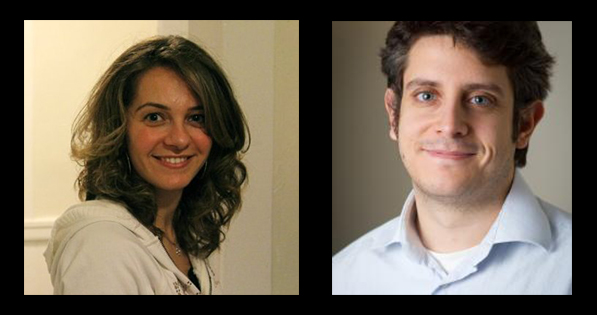
- This event has passed.
SCSB Lunch Series: Eleni K. Maneta, M.D. and Themistoklis P. Sapsis, Ph.D.
October 21, 2016 | 12:00 pm - 1:00 pm

Date: Friday, October 21, 2016
Time: 12:00 pm-1:00 pm
Speaker: Eleni K. Maneta, M.D. and Themistoklis P. Sapsis, Ph.D.
Affiliation: Department of Psychiatry, Boston Children’s Hospital; Harvard Medical School
Department of Mechanical Engineering; Massachusetts Institute of Technology
Talk Title: Learning, categorization and generalization in Autism Spectrum Disorder
Abstract: One of the most intriguing aspects of ASD is the fact that individuals with the condition have very different learning styles regardless of level of intelligence. These differences in learning play an important role in how individuals with ASD perceive the world and are thought to be central in the challenges they face. For example, if an individual with ASD were unable to learn from previous experiences, then each situation would be viewed as unique, and overwhelming. Multiple studies to date have attempted to uncover the mechanisms underlying differential learning in ASD; however, there continues to be a lack of consensus and a need for further exploration. In the first part of this talk we will present some basic facts about learning and ASD. We will give a brief overview of various theories that have been proposed to explain differential learning in ASD, focusing mainly on learning through prototypes, categorization and generalization. Building on this framework we will subsequently discuss a qualitative connection between dimensionality-reduction, categorization and generalization skills. The second part of the talk will concentrate on the mathematical modeling of the relationship between capability for categorization and the effectiveness of generalization. Using a Bayesian formalism we will show that simultaneously processing a large number of features associated with a stimulus, i.e. working with high-dimensional stimuli, results in poor categorization capabilities, even if the prototype has been learned correctly. At a technical level, this result is a direct consequence of the “curse” of dimensionality, which rises when one is working in high-dimensional spaces. Exceptions will be discussed and experiments from the literature will be interpreted through the developed analysis. The results pave the way for the design of new experimental protocols and measures that will i) lead to a better understanding of the challenges individuals with ASD face when it comes to categorization and in particular whether these are caused by impaired prototype formation or by the utilization of high-dimensional stimuli or a combination of the two, and ii) rigorously quantify learning styles and assess/predict the capability to perceive qualitatively different stimuli.
